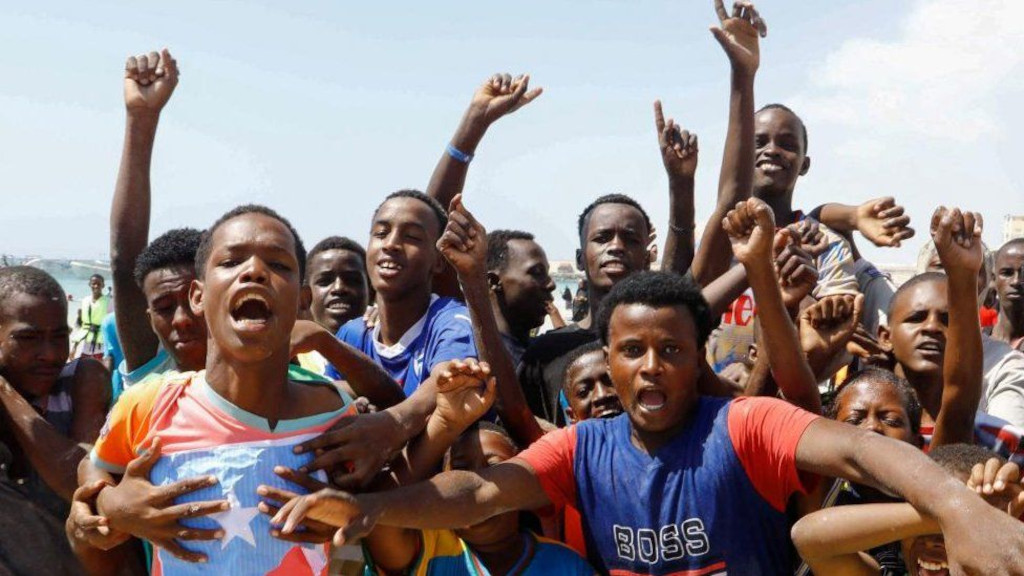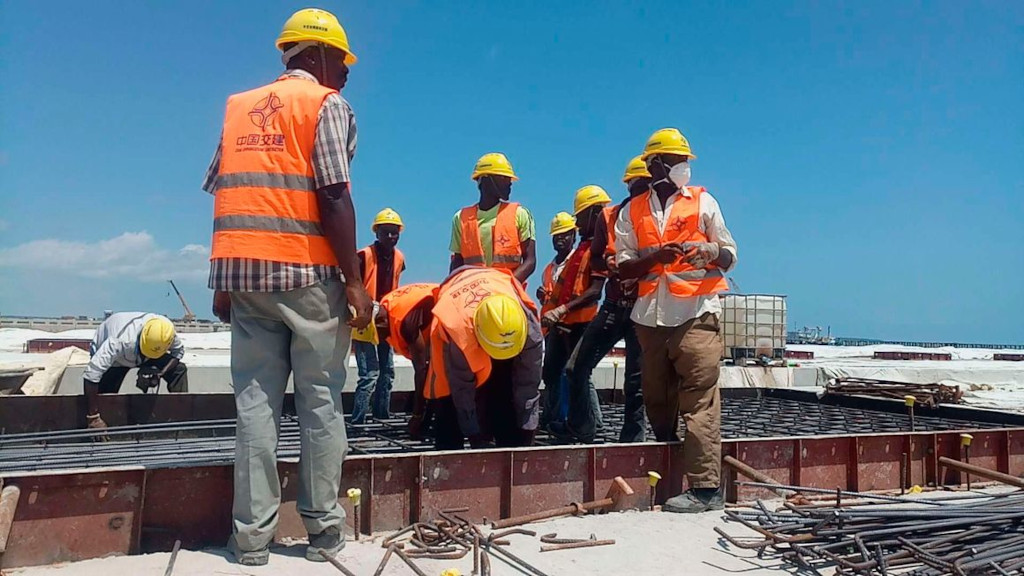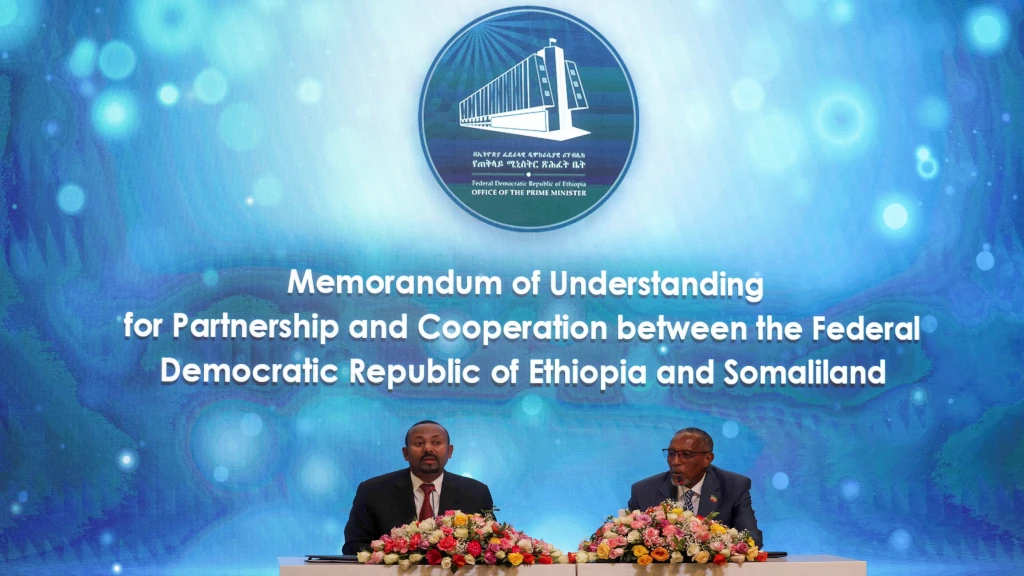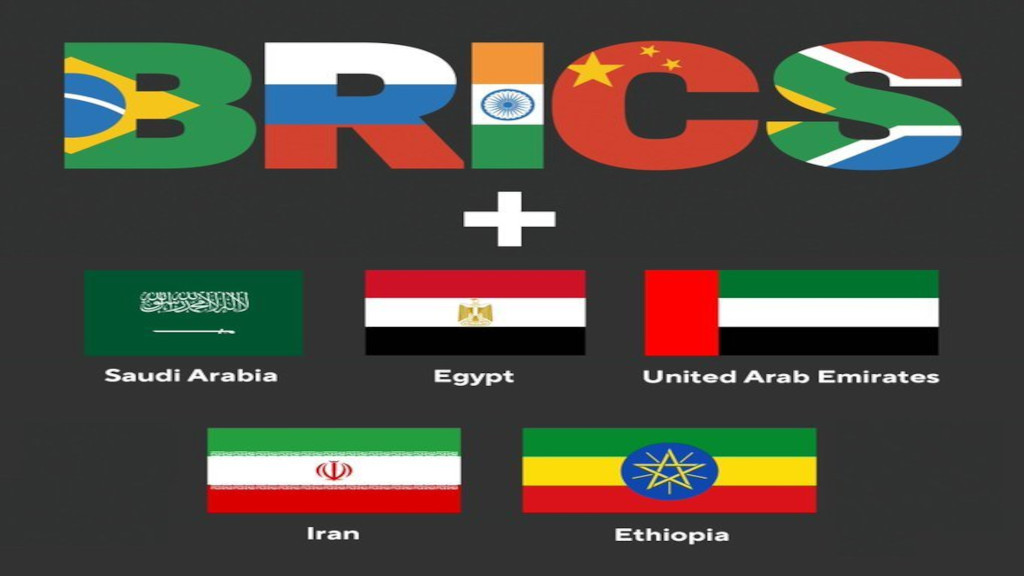The deal has caused outrage in Somalia
Somalia has ruled out mediation with Ethiopia unless Addis Ababa cancels a controversial deal that it recently made with the self-declared republic of Somaliland.
The 1 January agreement has been causing ructions in the Horn of Africa after Somaliland said it would lease part of its coastline to its landlocked neighbour.
Somalia – which considers Somaliland to be part of its territory – has previously described the move as an act of aggression.
Both the African Union and the US have backed the territorial integrity of Somalia and urged all parties to cool tensions.
What was agreed?
The exact wording of the deal signed by the leaders of Ethiopia and Somaliland has not been made public, which is a problem as there are differing versions of what the two sides agreed in the Memorandum of Understanding (MoU).
An MoU is a statement of intent rather than a legally binding agreement but what seems clear is that Somaliland is ready to grant Ethiopia access to the sea for commercial traffic through a port, although it is not clear which port that would be.
There is also a military aspect. Somaliland has said it could lease a section of the coast to Ethiopia’s navy, a detail which has been confirmed by Addis Ababa.
In return, Somaliland will get a share in Ethiopia Airlines, the country’s successful national carrier.
But where things get sticky is whether Ethiopia said it would recognise Somaliland as an independent state – something which no other country has done in the 30 years since the former British protectorate said it was leaving Somalia.
On the day of the signing, Somaliland’s President Muse Bihi Abdi said the agreement included a section stating that Ethiopia would recognise Somaliland as an independent country at some point in the future.
Ethiopia has not confirmed this. Instead, in its attempt to clarify what was in the MoU, the government on 3 January said the deal included “provisions… to make an in-depth assessment towards taking a position regarding the efforts of Somaliland to gain recognition”.
Why is this so controversial?
For Somalia, Somaliland is an integral part of its territory. Any suggestion that it could make a deal with another country or that bits of it could be leased without the approval of Mogadishu is highly problematic.
The day after the MoU was signed, Somalia described the deal as an act of “aggression” that was an “impediment to… peace and stability”. It also recalled its ambassador from Addis Ababa.
Ethiopia’s ambassador to Somalia subsequently left Mogadishu but there was no explanation for this move.
The Somali President Hassan Sheikh Mohamud later stepped up the rhetoric saying: “We will defend our country, we will defend it by all means necessary and seek the support of any ally willing to help us.”
He also called on youths “to prepare for the defence of our country”.
The president has described Ethiopia as his country’s “enemy”.
“We have resisted their [Ethiopia’s] invasion before. We defeated them before and we will again,” he said on 12 January, according to state-owned broadcaster SNTV.
Ethiopia and Somalia have a long history of rivalry.
In 1977 and 1978, Ethiopia and Somalia fought a devastating war for control of what is now called the Somali region of Ethiopia.
There have also been protests in Mogadishu against the deal with tens of thousands turning up to express their opposition.
What is the status of Somaliland?
Somaliland, a former British protectorate, declared itself independent from Somalia in 1991 and has all the trappings of a country, including a working political system, regular elections, a police force and its own currency.
Over the decades it has also escaped much of the chaos and violence that have hit Somalia.
But its independence has not been recognised by any country.
If, as Somaliland said, Ethiopia has agreed to recognise it at some point, it would have a profound impact on the Horn of Africa region.
What has Ethiopia said?
Prime Minister Abiy Ahmed last year described access to the sea as an existential issue.
Ethiopia lost its ports when Eritrea seceded in the early 1990s. With more than 100 million people, it is the most populous landlocked country in the world.
Mr Abiy’s statement raised fears that Ethiopia could try to achieve its goal by force.
It has described the deal with Somaliland as historic, and emphasised that its intentions are peaceful.
“The position announced by the government is strongly rooted in a desire to not engage in war with anyone,” Ethiopia’s communications office said.
But in an oblique reference to the controversy, Mr Abiy said on X that “if we expect things to happen in ways that we are used to or know or can predict, [opportunities] may pass us”.
He added that some sometimes “out of the box” thinking was needed to achieve goals.
What have others said?
On 3 January, African Union commission chairperson Moussa Faki Mahamat called for calm and mutual respect “to de-escalate the simmering tension”.
US state department spokesperson Matthew Miller also said that his country was concerned by reports that Ethiopia would recognise Somaliland’s independence.
“We join other partners in expressing our serious concern as well about the resulting spike in tensions in the Horn of Africa,” he added in a press briefing. The Arab League and the European Union have made similar statements.
Turkey, which plays a significant role in Somalia, stated its “commitment to the unity, sovereignty and territorial integrity” of Somalia.
And Egypt has also pledged support for Somalia. President Abdul Fattah al-Sisi told his Somali counterpart that Egypt stood by Somalia and supported “its security and stability”.
On 8 January, Somalia’s President Mohamud flew to Eritrea to hold talks with President Isaias Afwerki.
The Somali leader said Eritrea had said it backed Somalia in the dispute, but the Eritrean government is yet to comment.
Another regional neighbour, Kenya, which enjoys close relations with both Ethiopia and Somalia, has kept a low profile and has not yet formally commented, while Uganda has also not taken a clear position.
Source: BBC, 20th January 2024
 afric-Invest
afric-Invest




